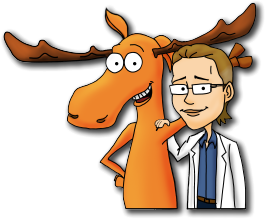Anything wrong with overweight people? Do they know their ideal weight or ideal BMI?
The answer is Yes, as explained below. Be patient, it takes a little explaining…
People’s Choice Ideal BMI Chart
The chart below shows adult Mens “People’s Choice Ideal BMI” on the top line, using data from the Crawford and Campbell study. The bottom line uses “normal” persons data ( of older Boys and Men from the NHANES III dataset2, using the median body weight at each increment of height) , and applies the well-established formula1 for “Lean Body Mass” to this data.
Then, the lean body weight plus the height, is used to calculate the “Lean BMI” (kg/m2). This is plotted as the bottom line on the chart. The slopes are identical ( 0.5 ). The gap between “Lean” and “Ideal” mostly represents a desirable amount of body fat.
People can judge their own ideal Weight
Since the lines are parallel (with identical slopes), it indicates that, as weight increases, people are able to judge their ideal weight to be proportional to their lean body weight.
Whether a person is overweight, normal, or underweight they seem to be able to choose a proportionate amount of fat, (above their lean body mass) to create their ideal weight. Analysis of female data has similar results.
It therefore appears reasonable to use the “People Choice Ideal BMI” to set an initial weight loss goal in overweight people.
Why do Men and Women have different ideas of ideal weight?
As this chart shows, Men’s choice of Ideal Weight is higher than Women’s, by about 2.06 BMI units. Why is that, you ask?
Does this gap between men and women represent physiology, or are societal factors responsible?
It is well known that average men have more skeletal muscle than average women, and an average woman has more fat than the average man. Since muscle weighs more than fat, it is natural that men would have a higher overall BMI than women.
The Lean Body Mass formulaes1 for women and men show this. In the chart below, NHANES III data2 for males and females ( using median weight at increments of height) is plotted as Lean BMI. The average difference in lean body mass between males and females is 1.76 BMI units.
Comparing the gaps between Men and Women, of People Choice Ideal BMI versus Lean BMI, the difference of 2.06 minus 1.76 is 0.3 kg/m2.
This translates into an approximate weight difference of only 2 pounds, which indicates that lean body composition differences between Men and Women
In other words, societal pressures ( media, advertising, peer-pressure, etc) seem to have little influence in how Men and Women perceive their Ideal Weight, which is reassuring.
References
- Formulas for Lean Body Weight (men) = (1.10 x Weight(kg)) – 128 ( Weight<small”>2/(100 x Height(m))2)
Lean Body Weight (women) = (1.07 x Weight(kg)) – 148 ( Weight2/(100 x Height(m))2) - NHANES III. Third National Health and Nutrition Examination Survey. 1988-1994 data from USA.
- Crawford D, and K. Campbell K, “Lay definitions of ideal weight and overweight“, Int J Obesity, 1999: 23:738-745.
Back to Ideal Weight Calculator, or the Body Mass Index Calculator.
Question and Answers
What is the difference between ‘overweight’ and ‘obesity’?
Being overweight or obese are both terms for having more body fat than what is considered to be healthy.
Both are used to identify people who are at risk for health problems from having too much body fat. However, the term ‘obese‘ generally means a much higher amount of body fat than ‘overweight’.
What kind of health problems can develop from being overweight or obese?
- Diabetes
- High blood pressure
- Heart disease
- High cholesterol
- Stroke
- Certain types of cancer
- Gallbladder disease
- Arthritis
- Breathing problems
- Kidney disease
- Kidney failure
How do I know if I’m overweight or obese?
The most popular way to figure out if your overweight or obese is to find out your Body Mass Index (BMI).
BMI is a quick and simple way to help analyse individuals who are overweight or obese. It allows you to compare your weight to what is considered ‘normal’ and ‘healthy’ for an adult of the same height as yours.
What causes overweight and obesity?
Most people become overweight from eating more calories than they burn. Some other things that may lead to this include:-
- poor diet/poor food choices
- lack of exercise
- an inactive lifestyle
- a family history
- supersized food portions
- negative emotions like boredom, sadness, or anger that may influence eating habits
Can I improve health by losing excess weight?
Yes. Experts agree that even a modest wight loss can help prevent or control many health problems such as heart disease, diabetes, and high blood pressure. The closer you are to a normal weight, the greater the health benefit.
What should I do if I am overweight or obese?
Speak to your doctor about a weight loss program or some ideas you can follow that are right for you. Your weight loss program should include three very important components such as diet, exercise and a behavior modification.
If you have any more questions, please speak to your healthcare provider, or a doctor. Ask for a referral to a registered dietitian if you need help, especially in planning your meals. Another way is to call the National Kidney Foundation and ask for publications on diet and exercise.
Other Indexes of Articles for this site:-
- ALL of our posts on Body Mass Index and Calculators
- Index of ALL our Height and Weight Posts
- Index of ALL our articles on Diets
- Full Index of our Anxiety Posts


